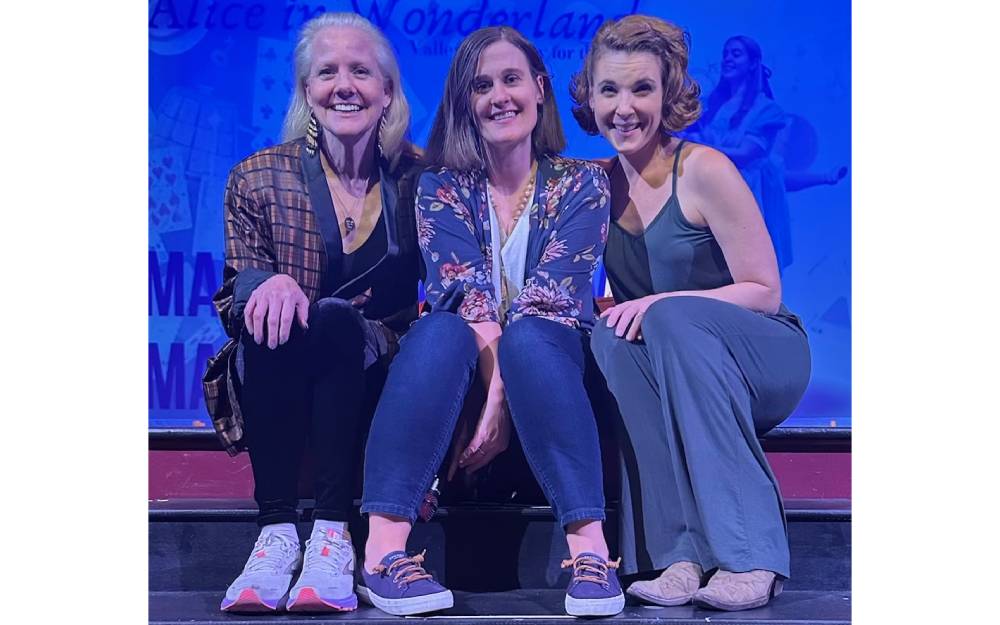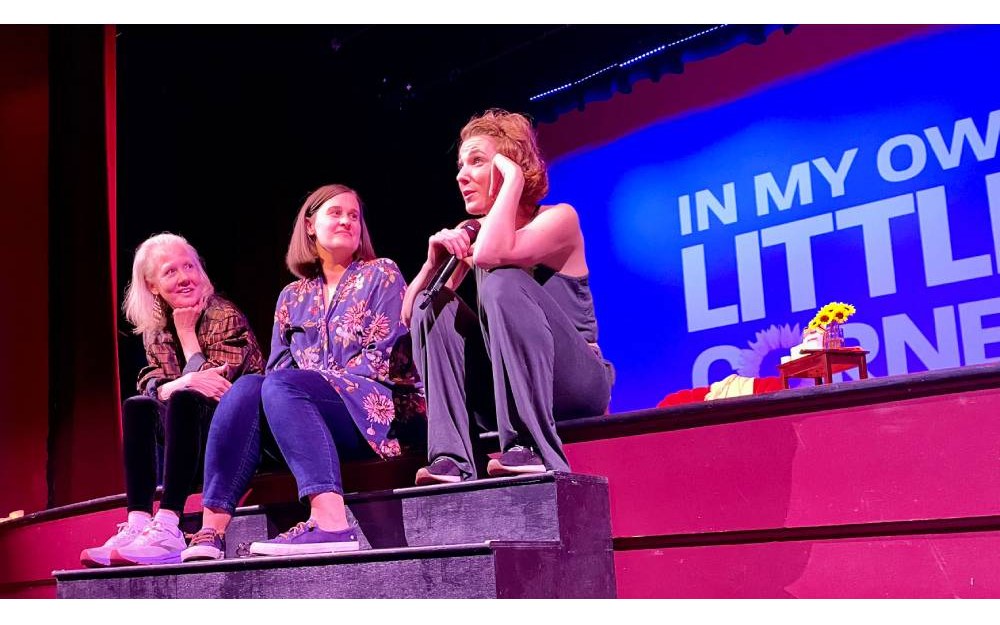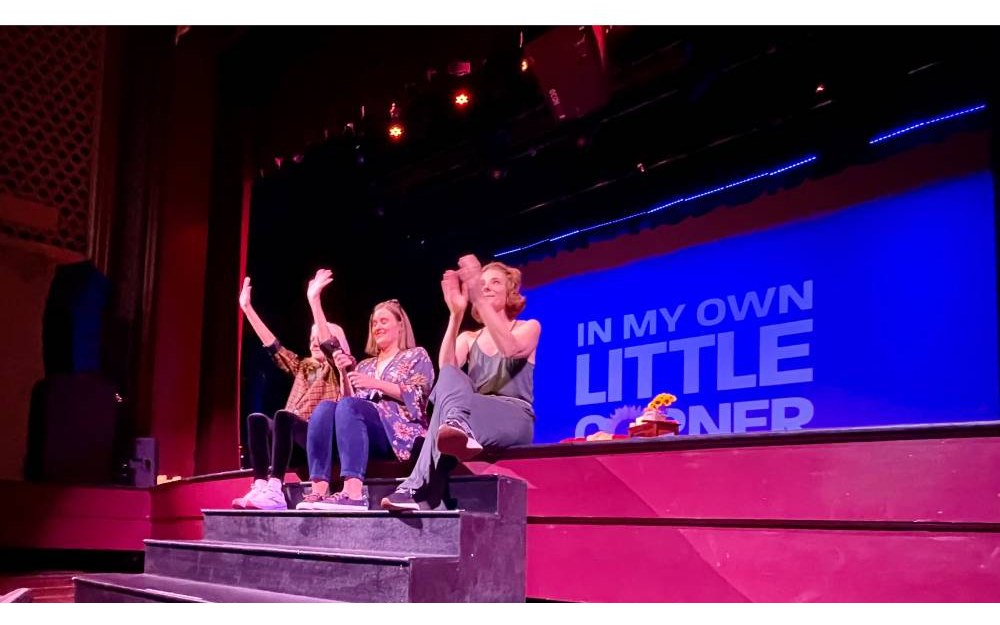
The significance of sharing your story: Signa Meyers speaks after musical about playwriter’s Bipolar II experience
07/25/24 12:00:pmSince stigma thrives in the shadows, it can help to shine a spotlight.
In May, Signa Meyers, vice president of strategic initiatives, attended and spoke after a play and musical “In My Own Little Corner.” The play was written and performed by Chryssie Whitehead, showcasing her journey of being diagnosed with and treated for Bipolar II Disorder.
Chryssie invites a mental health professional on stage to ask questions after each one of her shows, including Signa on the play’s final night in Oshkosh.
“It was emotional,” Signa shares. “But it was also really inspiring. Chryssie being so open about her struggles with mental health was amazing. Instead of just whispering about it like it happens to other people, she made it real by sharing her own story. It felt normal, just like talking about any other health condition, like ‘I have diabetes’ or ‘I have asthma.’ Chryssie even said, ‘If I can name it, I can tame it,’ and that really hit home for me.”
Signa says accurate diagnosis and treatment are key, and eliminating stigma can help people seek help.
“In our roles at Rogers, we get to see mental illness and the toll it takes on many people, but the public doesn’t have that kind of exposure. Chryssie has literally brought it to the stage: the good, the bad, and the ugly,” she says. “I think it was clever that she incorporated song and dance into her show, because sometimes when there’s so much pain, we just don’t have the words. Mental illness doesn’t just happen in our brain. It impacts our whole bodies. It’s a whole person disease. We need to treat the whole person.”
Signa thinks things are getting better when it comes to people not being ashamed of mental health problems. But there’s still a long way to go, and she believes it would help if people in prominent positions talked about their struggles.
Still, she acknowledges mental health disclosure isn’t always met with positivity, and progress isn’t linear. At the show, Signa asked Chryssie how she manages that.
“I asked how she balances hope and recovery with reality. Chryssie was candid with how stress can get in the way of recovery, and it’s not one and done. Even after diagnoses and treatment, you still have to do the work and be grounded in reality,” Signa says. “Sharing has to be our individual choice, because we have to be prepared for everyone’s reaction.”
Through WISE, Rogers’ Community and Learning Engagement offers the “Up to Me” program, which helps people make choices about whether and how they share their mental health conditions.








